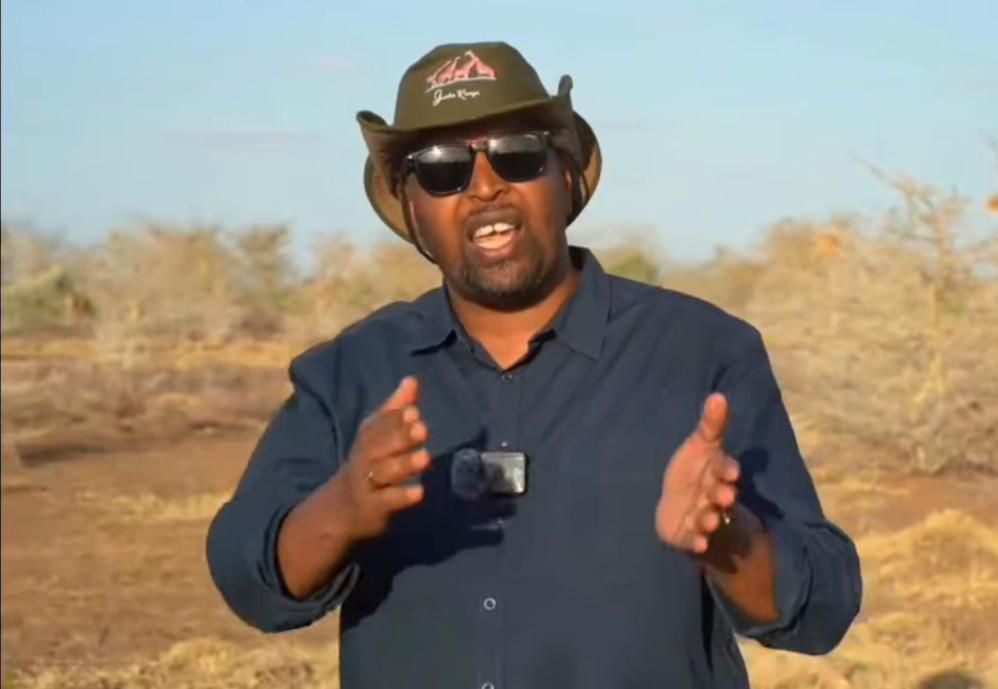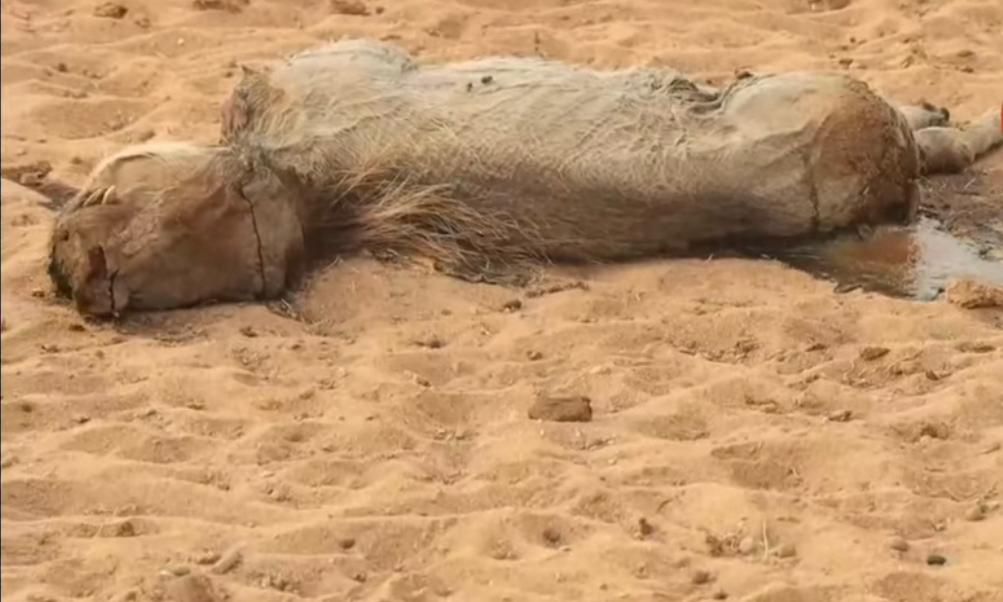

Sharmarke Mohamed, CEO of the North Eastern Conservancies Association, speaking to the press.

The Kenya Wildlife Service (KWS) and local conservancies
have condemned an incident where over 200 warthogs were poisoned in Muqder,
Wajir county.
On Wednesday, residents woke up to the horrifying scenes of dead warthogs scattered in the area in what is believed to be a dispute emanating from scramble over water resources occasioned by the prolonged drought.
Unconfirmed reports have it that, the residents might have decided to poison the water.
Wajir KWS senior warden Jamaal Abdirashid condemned the incident, which not only constitutes a serious offence under the Wildlife Conservation and Management Act but also poses a grave risk to public health and the broader ecosystem.
“It is unfortunate that somebody somewhere decided to do this. Warthogs pose no danger to people or livestock. These are simply thirsty animals, victims of a prolonged dry spell, seeking a share of the dwindling water resources,” Abdirashid said.
He emphasised that the actions violated Islamic values and Kenyan conservation laws, both of which advocate for compassion and protection of all living creatures noting that dialogue and cooperation have solved many such conflicts in the past.
“The Muqder case is deeply regrettable. We urge local communities to avoid such cruel methods. Our surveillance team and community scouts are investigating the incident, and anyone found culpable will face the law,” he added.
The KWS further appealed to pastoralists to report wildlife conflicts to authorities rather than take action.
Sharmarke Mohamed, CEO of the North Eastern Conservancies Association, condemned the incident after visiting the site, where dozens of warthog carcasses lay scattered near the Muqder borehole — a grim scene of environmental destruction.
“This act reflects a total disregard for Islamic teachings and the sanctity of life. Wildlife, too, suffers from the same drought affecting our people and livestock. They deserve empathy, not poison,” Sharmarke said.
He urged local religious leaders to step in and educate the community about the ethical and ecological consequences of such actions.
“We must foster coexistence with wildlife to maintain ecological balance. Poisoning animals is not only morally wrong but also threatens the delicate ecosystem of the region,” he added.
Sharmarke called for broader stakeholder involvement, including conservationists, religious leaders and government agencies, to raise awareness and promote peaceful and sustainable ways of resolving human-wildlife conflict.
The tragic incident serves as a stark reminder of the escalating pressure on natural resources in drought-stricken regions and the dire consequences of resorting to violence instead of collaboration.
Mohamed Osman a resident at Muqder, regretted the turn of events calling for peaceful coexistence with the wildlife living in the same habitat with the pastoralist communities.
“In this economic hardship and dry spell, pastoralists are compelled to buy water for their animals, and here comes a group of thirsty warthogs jostling for water, resulting in the pastoralist community opting for a lethal option. However, this does not to justify the cruel actions that were taken by the pastoralists. It was wrong,” he said.













